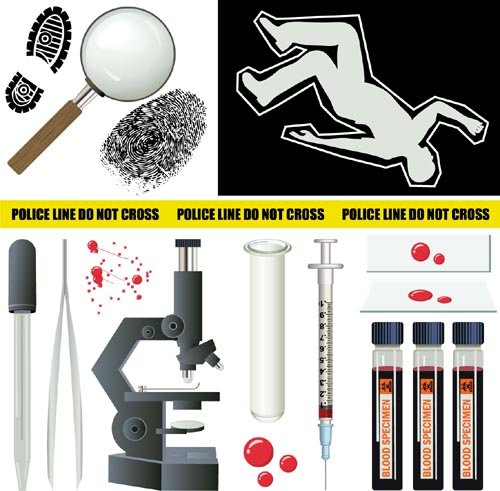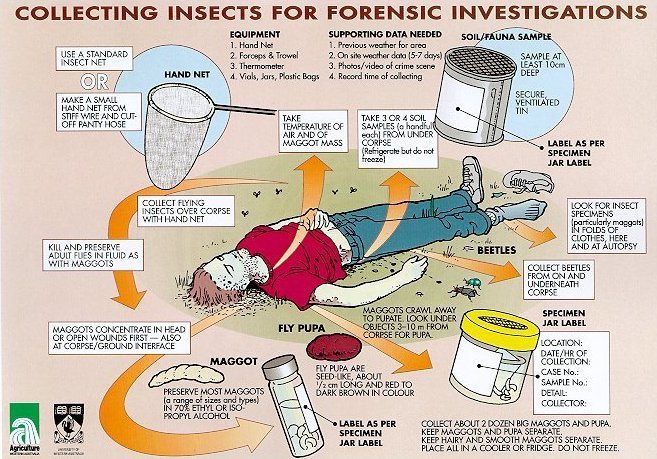 If you’re like me and millions of other people, you know about the CSI series – and watch at least one of them. Whether it’s CSI New York, CSI Miami, the original or whatever, they all have one thing in common: they show how cool crime scene investigators are. But being one is not all fun and games, actually it’s almost never games, and only sometimes fun. So if you want to become a crime scene investigator, are considering it, or are just interested in what their lives are really like, there are som things you need to know before you start.
If you’re like me and millions of other people, you know about the CSI series – and watch at least one of them. Whether it’s CSI New York, CSI Miami, the original or whatever, they all have one thing in common: they show how cool crime scene investigators are. But being one is not all fun and games, actually it’s almost never games, and only sometimes fun. So if you want to become a crime scene investigator, are considering it, or are just interested in what their lives are really like, there are som things you need to know before you start.
First of all, if you’re in it for the spotlight, forget it; crime scene investigators are rarely in the center of attention, and they almost never get the attention they deserve. Just like starting med school to be like doctor House isn’t a good idea, taking up a crime scene investigator college to be like Gary Sinise isn’t going to take you very far; you have to like what you’re doing for the job itself, not for the kind of benefits you see on TV. It is expected that you have attended a quality or have a degree in biology for lab techs and are able to apply that knowledge to your field duties. Second of all, you not only have to be smart, but you also have to know a lot of things. If you’re below average, you can’t be a CSI. Period. But that’s one of the good things, because if you do get to work as a crime scene investigator, you are going to work in an environment filled with smart and interesting people. They may not necessarily be the most talkative bunch, they may not be the cool kids, but they’re the interesting kids; and they love to learn things ! Whether it’s biology, physics, psychology, etc, you are going to have to know a bit of everything. So if learning interesting stuff is your thing, that’s definitely a plus, and you can’t get away with just what you leran at college.
Another thing that most people tend to neglect is the cases and assignments you will get; the vast majority of the cases you will face as a crime scene investigator are mundane; that’s not to say that they are boring or not important – not at all. But finding a hacker serial killer or whatever you see on TV – that almost never happens. But you’ll find that even most cases that seem uninteresting at a first glance have a lot of charm, and are quite demanding. After all, you’ll be working with evidence and deducting all sort of things, so your mind will always be working at maximum capacity; one of the perks here is that crime scene investigators almost never suffer from brain diseases, such as Alzheimer’s for example, because if you become a CSI, your brain is always going to be active. But that’s also demanding, so if you’re not good under pressure or stress, that’s going to be a problem, even though you can solve these things by practice and experience.

The money is also not the best around; of course, you do qualified work, which means that you won’t have any problems paying the rent, but the car you’re gonna show up in for work – it’s not going to be a ferrari. The salary of a CSI varies between about 30.000-100.000$ / year, if you want more details about a crime scene investigator’s salary, check the post here.
If you want to be a criminalist and work in a crime laboratory (sounds awesome, doesn’t it?), you will need at least a four year degree in biology or chemistry for example, or in medicine. If you want to be a crime scene technician, you will probably need less formal education, but a few agencies will require you to be a sworn police officer first. However, most don’t. A crime scene technician analyses the crime scene for evidence: bodily fluids or DNA, takes pictures of the scene, interviews witnesses and helps police officers in a sum of things. Allin all, a CSI does a lot of things, aside from investigating the crime scene; forensic identification is his main goal, but he is also a psychologist, a biologist, a chemist, and sometimes even a cop. It’s important to understand that there are different types of crime sceme investigator: from a crime scene technician and medical examiner to a forensic analyst or even computer forensics. Hopefully, this has somewhat given you a clue about what a crime scene investigator does; of course, you can’t totally understand this from an article, but hopefully you can get that feel that you’re starting to know what it’s about.



